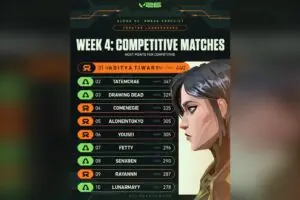Some are continuing to clamor for blood as ESL continues to determine precisely who was involved (and where) in the current scandal that is rocking the professional Counter-Strike scene that involved a bug that would allow coaches to spectate in-progress matches and feed their team information as to who was holding what.
The investigation has been ongoing since Monday, the day after ESL One Cologne 2020 Online closed, and ESIC has stated that they will be continuing their investigation for the next two months while they examine all evidence, and ask those that have information on the scandal to step forward to save precious hours of labor.
To say that the professional scene of Counter-Strike is currently wildly uncertain, even barring the current problems and struggles of attempting to perform during the ongoing pandemic which has brought all matches online, is accurate.
Videos continue to release that point towards more teams using the exploit to gain an advantage than those that have currently been indicted by both ESIC and ESL, and with ESIC seeking the publics help, this roller-coaster is far from over.
Many are stating, however, that the players that benefitted from coaches offering them information by using the exploit should similarly be punished.
If ESIC can parcel bans to the members, it then seems appropriate that they’ve concluded that coaches attempted to use the exploit to offer the teams information on how the round has progressed. Thus, players willingly participated in the exploit, and should likewise face expulsion from competitive play for the interim.
ESIC has thus far ruled differently in the newest statement, stating that there is currently insufficient evidence that points to players willingly participating in the exploit.
Many are noting that in order for coaches to be banned, that means players were likely complicit in receiving the information; conversely, however, it’s relatively difficult to close one’s ears from someone in the same room or VoIP.
As we’ve stated, this is far from over, and ESIC could overturn this in the near future, or maintain their course in the current standing of players not being impacted by coaches opting to use the exploit to cheat in official matches.
It’s nearly unprecedented on this scale, to have cheating run so rampant within a professional esport scene, yet it’s arguably par for the modern course of Counter-Strike: Global Offensive; a title that has struggled valiantly with its anti-cheat in recent history to the point that play is almost impossible on standard match-making servers.





